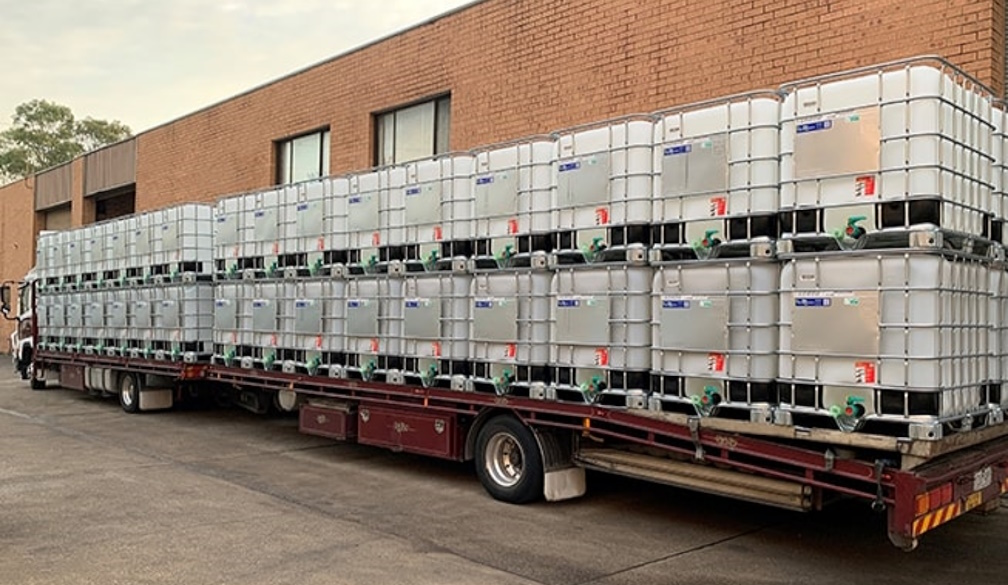Solutions Bridging Agriculture and Bulk Liquid Transport

The agricultural industry is heavily reliant on the efficient transport and storage of various liquids, from water and fertilisers to chemicals and pesticides. With farms often situated in rural or remote areas, ensuring these essential liquids are safely and cost-effectively transported is crucial. Bulk liquid transport solutions offer a lifeline for many agricultural operations, enabling seamless logistics and optimising the use of resources.
In this article, we explore how bulk liquid transport solutions are bridging the gap between agriculture and logistics, providing farmers and agricultural businesses with practical and sustainable ways to handle liquids on a large scale.
Meeting the Agricultural Industry's Liquid Transport Needs
Agriculture requires the movement of large volumes of liquids for irrigation, fertilisation, crop protection, and livestock management. Traditionally, the industry has relied on a combination of local suppliers and smaller containers to meet its needs. However, as operations grow and efficiency becomes a priority, many agricultural businesses are turning to Intermediate Bulk Containers (IBCs) to streamline their transport processes.
IBCs offer several advantages, including the ability to transport large quantities of liquid in one trip, reducing the frequency of deliveries and thereby cutting down on transport costs. These containers also help to reduce waste, as they are designed to be durable and reusable, making them ideal for transporting water, fertilisers, and liquid feed across farms and fields.
Benefits of Bulk Liquid Transport for Agriculture
Cost-Effective and Scalable Solutions
One of the key benefits bulk liquid transport brings to agriculture is cost savings. With IBCs and bulk transport systems, agricultural businesses can move more liquid in fewer trips, reducing fuel costs and time spent on transport. This scalability is particularly advantageous for larger farms that require significant quantities of liquid to maintain operations.
For example, bulk transport allows for the efficient distribution of water during drought periods or when irrigation systems require constant replenishment. Similarly, the ability to transport liquid fertilisers or pesticides in bulk ensures that crops are treated on schedule without delays caused by the logistics of frequent deliveries.
Safe and Secure Transport of Agricultural Chemicals
Transporting agricultural chemicals such as pesticides and herbicides poses a challenge due to their hazardous nature. These agrochemicals need to be handled and transported with care to prevent spills, contamination, or damage to the environment. Bulk liquid transport solutions, particularly IBCs, are designed to meet stringent safety standards, ensuring that agricultural chemicals can be moved securely across rural areas.
IBCs offer features such as chemical resistance and leak-proof seals, making them ideal for transporting hazardous substances used in agriculture. By utilising these containers, farmers can be confident that their chemicals will arrive intact and ready for use, without the risk of spills that could harm crops or livestock.
Sustainability and Efficiency in Liquid Transport
Sustainability is becoming an increasingly important concern in agriculture, and bulk liquid transport solutions are helping farms reduce their environmental footprint. With the ability to move large volumes of liquid in a single trip, bulk transport reduces the need for multiple deliveries, cutting down on fuel consumption and greenhouse gas emissions.
Moreover, the reusability of bulk containers such as IBCs means that farms can minimise waste. These containers are built to last, allowing agricultural businesses to reuse them repeatedly, unlike single-use plastic containers that contribute to environmental waste.
Additionally, many modern bulk transport solutions are designed with sustainability in mind, offering innovative features such as temperature control systems for liquids that are sensitive to heat or cold. These solutions ensure that agricultural products, whether they be liquid feed or fertilisers, maintain their integrity during transport, reducing spoilage and wastage.
Bridging the Gap Between Agriculture and Transport
The rise of advanced bulk liquid transport solutions is helping to bridge the gap between agriculture and logistics, making it easier for farmers to manage the movement of essential liquids. As the agricultural industry continues to evolve and adopt more efficient practices, the role of bulk transport solutions will become even more critical in ensuring that farms remain productive and sustainable.
Companies specialising in bulk liquid transport provide tailored solutions designed to meet the unique needs of the agricultural sector. Whether it's managing the transport of fertilisers, water, or agricultural chemicals, these solutions are designed to enhance efficiency, safety, and sustainability.
To explore more about how bulk liquid transport can support your agricultural operations, visit tankmanagement.com.au for innovative products and expert advice on handling your bulk liquid needs.
Conclusion
Bulk liquid transport solutions have revolutionised the way agricultural businesses handle their essential liquids, offering cost-effective, scalable, and environmentally friendly methods of transport. As the industry faces growing demands and environmental pressures, adopting these advanced transport systems will be vital to ensuring long-term productivity and sustainability.
For agricultural businesses looking to improve their logistics and streamline their operations, bulk liquid transport solutions provide the answer, bridging the gap between the fields and the critical resources they need.






